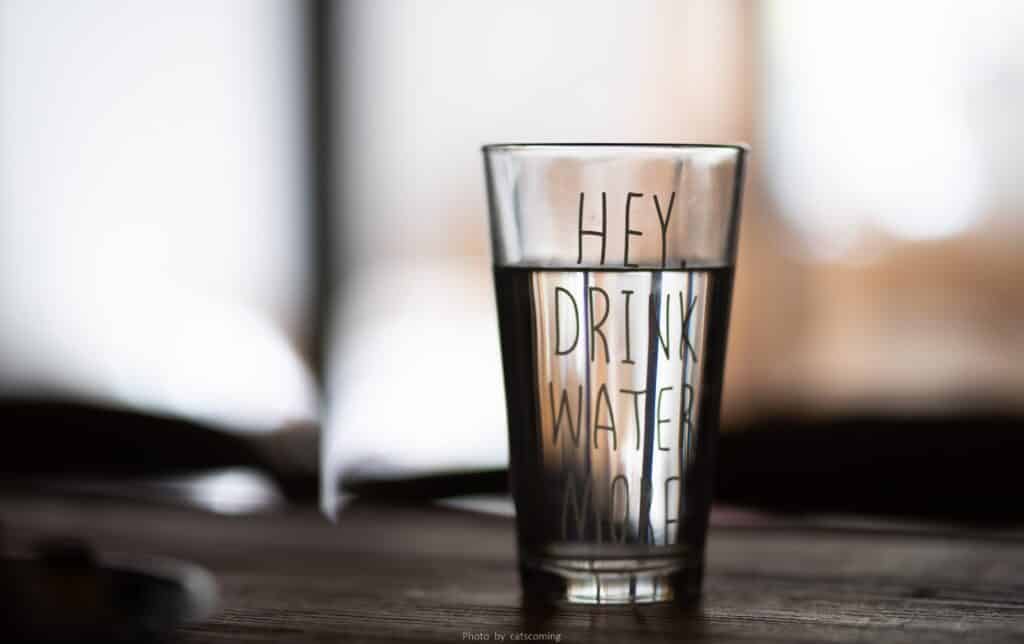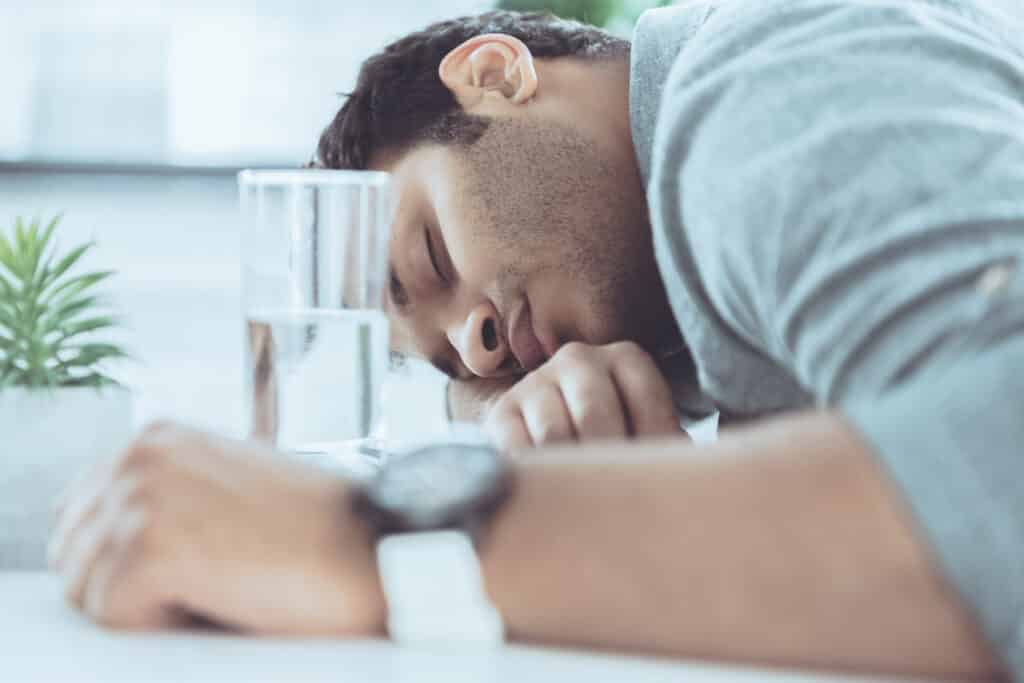
There are a number of reasons why you should drink water for stress relief. It increases your energy levels, lowers your anxiety, and improves your sleep.
Another health benefit is, that water is a powerful tool for the production of melatonin, a hormone responsible for regulating our sleep.
However, there are some important things to consider before starting any water-based stress relief effective treatment program. We have all had a stressful day before. Here are three reasons why you should drink plenty of water every day and help your stress hormones.
Best Ways Of Keeping yourself hydrated reduces stress
It’s no secret that proper hydration has numerous benefits, but many people don’t realize the importance of drinking water to reduce stress.
Dehydration, a major contributor to a stress response, increases the risk of cardiovascular disease, increased heart rate, and fatigue.
Dehydration also causes physiological problems, such as headaches, nausea, and fatigue. But there’s a simpler way to stay hydrated: Drinking water.
While many people reach for prescription medication and holistic treatments to relieve stress and see a significant improvement, there’s no better way to improve your overall health and reduce your overall stress levels than by increasing your fluid intake.
Experts recommend as much water as eight glasses of water a day to keep the body hydrated and prevent caffeine crashes during the day.
As a stress reduction measure, you should keep track of how you feel after drinking water and note if it reduces your feelings of stress.
One recent study shows that dehydration increases cortisol levels in the body, the key stress hormone. Long-term production of cortisol leads to adrenal fatigue, and dehydration is linked to depression and anxiety.
Water also converts tryptophan into serotonin, the body’s natural feel-good chemical. It’s no wonder that water is essential for optimum metabolism and optimal oxygenation.
A new study from Tufts University reveals a link between dehydration and anxiety. Mild dehydration was associated with increased feelings of anger, confusion, tension, and fatigue.
Therefore, it makes sense that hydration can help reduce stress and anxiety. Drinking plenty of water can make the difference between a good day and a bad one. And while it’s not a miracle solution, it’s certainly worth a try.
Drinking Water Helps With Stress Management & Boosts Energy
When under stress, your body requires more water than the usual amount of water. This is a good thing because dehydration contributes to a stressful event.
Stress causes your body to produce excess cortisol, which is a hormone that affects your energy levels. When you’re dehydrated, you’ll experience more negative emotions, anger, and fatigue.
This can lead to a variety of physical and mental problems. To help combat stress, drink water throughout the day.
Keep a bottle of water with you, and drink water every half hour. Do not wait until you are thirsty, which is another sign that you’re dehydrated.
In addition to boosting your energy level, water also helps prevent dehydration. When you’re dehydrated, your body will have to work harder to warm up.
This will increase your metabolic rate. However, drinking water without ORS will not give you a noticeable energy boost. Instead, try consuming water that contains an ORS.
It’s an excellent way to restore energy and reduce fatigue. Even drinking just a cup of water can increase your productivity and is a simple way.
benefits of drinking water for mental health
Drinking enough water has several benefits for our mental health. A recent study in the World Journal of Psychiatry has found that people who drink five to seven glasses of water per day experience lower rates of depression and anxiety.
Conversely, people who drink less than seven glasses per day double their chances of depression. However, drinking water every day helps reduce the negative effects of dehydration on our bodies. Hence, drinking water is essential to maintaining our mental health.
A recent study conducted by the University of East London’s School of Psychology found that hydration improves visual attention and memory.
Other studies performed at the University of Bristol’s Department of Experimental Psychology found that hydration improved the performance of schoolchildren in a task that requires visual attention.
Aside from hydration, drinking water helps with constipation. Constipation is caused by inadequate fluid intake or other health problems, including fever and diarrhea.
Symptoms of constipation include hard, incomplete stools or the sensation of an empty rectum.
Dehydration causes a stress response in the body. As the first step in the stress response, dehydration can trigger the release of stress hormones.
When the body is dehydrated, it releases stress hormones, triggering a chain reaction of events that result in physical and mental health problems.
According to the World Journal of Psychiatry, drinking enough water can reduce the negative physiological and psychological effects of stress.
Drinking Enough Water Reduces Anxiety

Many people who suffer from anxiety and stress are dehydrated, but there is no control group to support the claim that drinking more water reduces anxiety.
Although it’s true that dehydration can cause anxiety, it is largely not a causal factor. Many lifestyle factors are known to support mental health.
Whether or not drinking more water is actually an effective way to reduce anxiety is not clear. For now, however, there are many benefits to staying hydrated.
Besides being beneficial for your overall health, drinking water has proven beneficial effects on neurotransmitters, enzymes and transporters in the nervous system.
In one study, water consumption and depression were significantly correlated. People who consumed less water were more likely to report higher levels of anxiety.
The researchers suggested that this may be due to the fact that water reduces the activity of the sympathetic nervous system, which may be responsible for dehydration-induced anxiety.
This decreased activity of the sympathetic nervous system may also lower the levels of norepinephrine, which are elevated in psychosomatic depression. Additionally, water consumption could activate the HPA axis.
Researchers in Iran found a significant association between water consumption and health outcomes. They evaluated participants based on the number of glasses of water they consumed daily.
They also looked at the level of depression and anxiety in participants. The results indicated an inverse relationship between water consumption and anxiety and depression, but this is not conclusive yet.
Prospective studies are needed to confirm the findings and determine whether drinking water has positive effects on mental health.
Dehydration has been linked to increased anxiety and depression, which can lead to panic attacks and other symptoms of depression and the effects of stress. If not treated, anxiety and depression can lead to panic attacks and other serious health issues.
The only way to prevent this from happening is to increase your water intake and avoid dehydration altogether.
In addition to this, drinking water during the day may also help you stay hydrated. If it does indeed help you reduce anxiety and stress and it’s a simple solution, it’s worth a try.
Having More Water In Your Body Helps You Get Enough Sleep

More people are seeking healthier alternatives for dealing with stressful situations on a daily basis. Instead of turning to pills and alcohol, they’re trying out natural drink supplements and beverages.
Drinking chamomile tea, which originated in Europe, maybe one of these solutions. It helps your heart pump blood more efficiently, which helps you relax and get a good night’s sleep.
But what else is available? How can drinking water help you sleep better?
The benefits of drinking water to help stress improve sleep include reducing fatigue and improving mood. Stress and preoccupation with tasks can negatively affect your sleep.
But drinking water can boost your mood and produce happy feelings. In turn, these emotions can contribute to a peaceful night’s rest.
Conversely, dehydration can affect your sleep by making you feel tired and irritable, affecting your ability to concentrate, inhibiting your energy levels, and making you feel restless and irritable.
When your body is under stress, dehydration gives you high cortisol levels, a hormone related to stress. Chronically high levels of cortisol and dehydration may lead to fatigue, increased depression, and anxiety.
Drinking water also helps to convert tryptophan into serotonin, a natural feel-good chemical. Additionally, water helps the body function optimally by ensuring adequate oxygenation and metabolism.
Moreover, drinking water before bed can also increase your urine production, which disrupts the sleep-wake cycle. Not only is this disruptive to your sleep, but it can also disrupt your natural cycle.
It’s essential that you get at least 7 to 9 hours of sleep in a day. Drinking water before bed is a great way to relax and wind down after a long day.
Just remember that drinking water before bed can make you less likely to experience unpleasant side effects.
More Water Can Help Reduce Fatigue

Many people feel tired all the time. This may be caused by too little sleep, not enough exercise, or a bad diet. It can also be the result of an underlying medical condition.
A few simple changes can help restore your energy levels. For example, you should avoid overeating, drink plenty of water, and try to get more exercise.
It is also a good idea to cut down on alcohol and other recreational drugs, which can contribute to fatigue.
Water is also a good idea if you’re feeling stressed out. Not only can it prevent dehydration, but it can also boost your energy levels.
However, water does not contain any stimulants, so it will not give you a boost of energy unless you’re dehydrated.
In this case, you should drink water with an ORS to restore your energy levels. By drinking water regularly, you’ll be able to feel more alert and productive.
Dehydration increases stress levels. People who are dehydrated have less energy and are more prone to anger, negative mood, and cognitive problems.
It’s important to drink water frequently throughout the day to avoid this vicious cycle. It’s a good idea to keep a bottle of water close by and drink it at least every half hour to avoid the feeling of being thirsty. The best time to drink is before you feel thirsty.
Many people try to maintain their daily routine while undergoing treatments. However, they may have to adapt their routine to conserve energy.
Even if you’re doing all you can to keep your energy levels up, there’s a good chance that you’ll become dehydrated and end up feeling drained and stressed.
Stress can be a result of dealing with the disease, daily accomplishments, or not meeting others’ expectations.



Leave a Reply